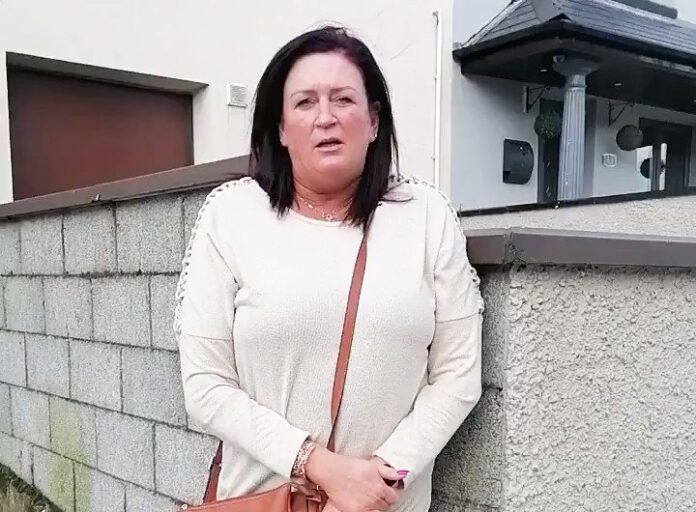
A PROTEST was held in Rhebogue this morning over plans by the University of Limerick to start construction next month on a 20-house student village to ease pressure on the accommodation supply for students.
Construction on the 80 bedroom development, which will be the university’s ninth student village, is expected to be completed next August.
The protest was staged by residents from the nearby Drominbeg housing estate who have questioned the lack of consultation for the development which received planning permission from Limerick City and County Council earlier this month.
They are also concerned about the proliferation of Japanese Knotweed, the invasive plant that can damage houses and tarmacadam surfaces.
Speaking to Live 95 local radio, Residents Association Chairwoman Sarah Beasley said they have serious concerns about the development.
“We feel so angry that this is happening in our estate. Pictures have been sent to me of neighbouring houses that have the knotweed issue. So what we’re saying is that it needs to be monitored and this process could take four to six years,” she explained.
“We’d prefer something like a community centre to be honest. There’s nothing in Rhebogue, absolutely nothing. Our children have nowhere to go, so even a play area would be an improvement.
“But, at the end of the day, it is not about that. It’s about eradicating the knotweed,” Ms Beasley added.
The university has estimated it will take 27 years to repay the capital expenditure on the project, which, it said, “should maintain affordable rental charges for students”.
The development will be built by a private developer and purchased by the university through its Plassey Campus Centre subsidiary.
UL Provost and Deputy President, Professor Shane Kilcommins said they were looking at every possibility to try to meet the huge demand for accommodation for the student community.
The university has not yet decided which student cohort will avail of the new accommodation with Prof Kilcommins stating that the choice will be between undergraduate, postgraduate or visiting international students.
“The purchase of these 20 new houses is just one of the short- to medium-term responses identified by UL. However the demand for student accommodation is likely to persist in line with our national housing shortage,” he added.
“UL already provides the largest percentage of on-campus accommodation per student population of any higher education institution in Ireland with bedrooms available to almost 16 per cent of our students”.









